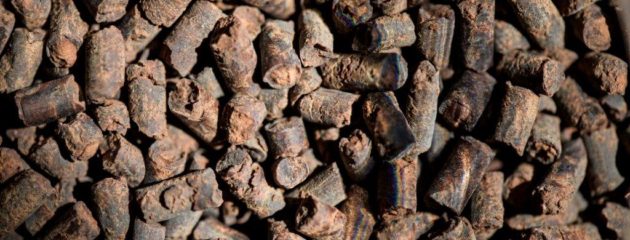
New Research Shows 30 million Hectares of New Soy Production Required by 2050 to Meet World’s Protein Needs
Profound Threat to Natural Habitats Unless Adoption of Alternative Protein Accelerates
Copenhagen, 24 February 2022 – Unibio, the sustainable protein company, today released new research, which shows that 31 million hectares of new farmland, equivalent to all the arable land in Germany and France combined[1], would need to be planted with soy alone by 2050 to deliver the additional protein the world will need to feed itself.
COP26 – Stop deforestation
However, global leaders at the recent COP26 Climate Summit recognised the critical impact of deforestation on climate change, and one of the key commitments reached at the Summit was to halt and reverse forest loss and land degradation by 2030.
Possible to stop deforestation
Unibio has developed a sustainable protein derived from natural microbial fermentation, which it is now producing at an industrial scale, the first company in the world to do so. With the production method it is possible to produce unlimited amounts of protein to feed the world’s growing population and prevent the deforestation.
Heavily growing population – a new solution is needed
David Henstrom, Chief Executive Officer, Unibio said: “With the global population forecast to reach almost 10 billion people by 2050, an increase of 25% of today’s population, more food will be needed than has ever been produced before in the history of the world combined to feed them. This food has to come from somewhere.
“In recent years, much of the expansion of production has come from the ‘Brazilian savannah’, the Cerrado, where one hectare of virgin Cerrado stores around 137 tons of CO2 equivalent. Protecting 31 million hectares of Cerrado would save 4,148 million tons of CO2 from being emitted – or 134 million tons/year, roughly twice Denmark’s total annual emissions. Similarly, the production of fishmeal can put undue stress on marine ecosystems with the production of just one ton of fishmeal requiring the capture and processing of around 135,000 fish[2]. Peru alone processes over 4-7 million tonnes of fish per year, equivalent to between 160 and 280 billion anchoveta.”
Let’s join forces
David Henstrom added: “We urge all global leaders to join forces in accelerating the adoption of alternative proteins, such as Unibio’s groundbreaking Uniprotein®, to help reduce the pressures of deforestation and prevent land-use change. The world is facing an unprecedented environmental stress with the threat of increased deforestation, habitat and biodiversity loss, and the accelerating damage to our ecosystems. This is why the adoption of alternative sources of protein, in order to feed the ever-growing population, is of paramount importance.”
Unibio’s innovative, continuous-flow, natural, microbial fermentation process uses its proprietary U-Loop® technology to produce Uniprotein®. Uniprotein® is a high-quality alternative protein, which can replace products such as fish meal and concentrated soya in feed for fish and other animals, such as pigs. Unibio’s technology enables production of more sustainable protein in very large and scalable volumes to help meet the world’s growing protein needs.
Uniprotein® is a close substitute to high-quality fishmeal (LT Fishmeal), but it can also substitute highly concentrated soy product, both being increasingly scarce resources. In addition, the product has been shown to be safe to use in piglet feed compound as a starter feed, in partial supplement of potato protein. Unibio’s technology has been proven at industrial scale and has been commercially shipped, for example to the Danish compound feed company, Danish Agro – who are using Uniprotein® as a fixed part of its feed mixes.
Ends
Notes to Editors
About Unibio
Unibio, the leading sustainable protein company, uses microbial fermentation to convert natural gases, including biogas, into high quality and sustainable protein for fish and animal feed. It is Unibio’s mission to deliver sustainable protein for farming and fishing practices. Unibio’s technology is highly resource efficient and is sustainable. The process mimics microbial consumption of gases emitted by decaying plant material that happens every day in nature.
About U-Loop® technology
U-Loop® technology is a continuous-flow fermentation process allowing for a high conversion-rate, the high utilization of gases and economical production. Through its proprietary process, the gases are converted to protein that is subsequently treated and purified to a nutritious, high-quality feed-grade. Unibio owns the intellectual property rights to U-Loop® technology.
About Uniprotein®
Uniprotein® has a 70% protein content that compares with high-value proteins like super-prime fishmeal and highly concentrated soy products. Uniprotein® protein provides proteinic nutrient in animal feed. In pellet form, Uniprotein® has 11% water content, 70% protein content in dry matter and 85% digestibility for salmonids (and slightly lower for most other animals, as with other protein sources), yielding digestible protein content of 53%. This means that 1kg of Uniprotein® yields 530g of digestible protein.
Uniprotein® is a superior protein product
- With a high protein content – above 70%
- Is a sustainable (alternative) protein
- Can be used as a direct supplement in animal feed compounds
- Is a highly digestible feed
- Produced at industrial scale
- The single cell protein inside Uniprotein has been approved for animal and fish feed by the EU
- Amino acid composition similar to fishmeal or soybean meal
- Non-GMO
- Free from pesticides, herbicides, & heavy metals, fertilizers, antibiotics
- Easily traceable
- Uniform product quality
- Has a long shelf life
- Comes as powder or pellets
Uniprotein® will be sold through a network of distributors, as well as directly to large key accounts around the world.
For media enquiries / access to photos, please contact
Montfort Communications
Nick Bastin
T: +44 (0)7931 500066 / E: Bastin@montfort.london
Jack Roddan
T: +44 (0)7825 670695 / E: roddan@montfort.london
Isabel Garnon
T: +44 (0)7772 207207 / E: Garnon@montfort.london
Unibio
Trine Leth, Head of Communications
T: +45 23231965 / E: tl@unibiogroup.com
[1] Source – https://www.nationmaster.com/country-info/group-stats/Group-of-7-countries-(G7)/Agriculture/Arable-land/Hectares
[2] Fish = Peruvian anchoveta – source: Aquareg



